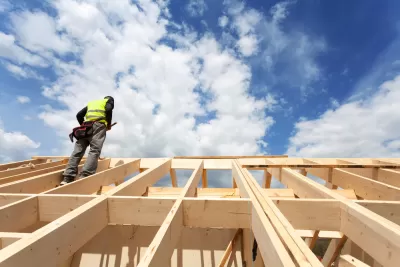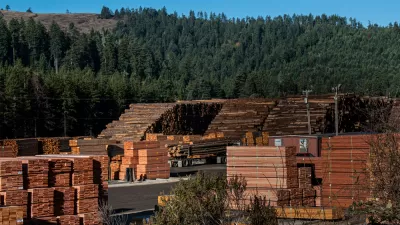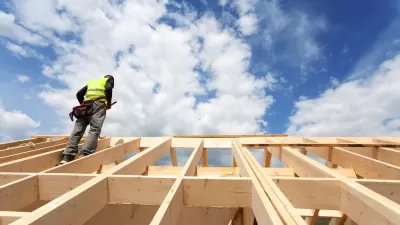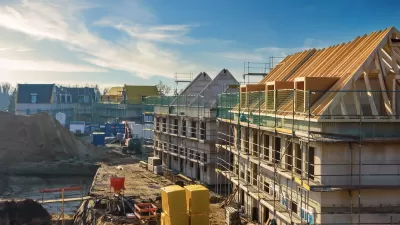Home buyers are likely to pay the cost of a recent decision by the U.S. Commerce Department.

Peter Baker and Ian Austen report: "The Trump administration announced on Monday that it would impose new tariffs on Canadian softwood lumber imports, escalating a longstanding conflict with America’s second-largest trading partner."
"The United States imported $5.7 billion in softwood lumber last year alone, mainly for residential home building," according to the article, which focuses mostly on the trade implications of the Commerce Department's decision to impose the tariff.
In a separate article, Chris Kirkham and Sarah Nassauer dig into the implications of the tariff for the U.S. home-building industry, which they say "has struggled with higher labor costs since the housing crash a decade ago." Here, the reporters explain how lumber fits into the total cost of new homes:
Based on analysis last year, a builder spends an average of $15,413 for the softwood lumber in a single-family home, or about 7% of the total construction cost of a home. Lumber cost increases so far this year have added an estimated $3,000 to the cost of building a typical home, according to the home builders’ association.
Lumber costs are already higher than they have been in a decade, according to the article.
Another article by Diana Olick calculates the expected cost U.S. home buyers will likely pay to cover the new tariff. Based on calculations by the National Association of Home Builders, homebuyers will increase Canadian lumber costs by 6.4 percent, or another $1,236 to the cost of an average single-family home.
FULL STORY: In New Trade Front, Trump Slaps Tariff on Canadian Lumber

Alabama: Trump Terminates Settlements for Black Communities Harmed By Raw Sewage
Trump deemed the landmark civil rights agreement “illegal DEI and environmental justice policy.”

Study: Maui’s Plan to Convert Vacation Rentals to Long-Term Housing Could Cause Nearly $1 Billion Economic Loss
The plan would reduce visitor accommodation by 25% resulting in 1,900 jobs lost.

Planetizen Federal Action Tracker
A weekly monitor of how Trump’s orders and actions are impacting planners and planning in America.

Waymo Gets Permission to Map SF’s Market Street
If allowed to operate on the traffic-restricted street, Waymo’s autonomous taxis would have a leg up over ride-hailing competitors — and counter the city’s efforts to grow bike and pedestrian on the thoroughfare.

Parklet Symposium Highlights the Success of Shared Spaces
Parklets got a boost during the Covid-19 pandemic, when the concept was translated to outdoor dining programs that offered restaurants a lifeline during the shutdown.

Federal Homelessness Agency Places Entire Staff on Leave
The U.S. Interagency Council on Homelessness is the only federal agency dedicated to preventing and ending homelessness.
Urban Design for Planners 1: Software Tools
This six-course series explores essential urban design concepts using open source software and equips planners with the tools they need to participate fully in the urban design process.
Planning for Universal Design
Learn the tools for implementing Universal Design in planning regulations.
Caltrans
Smith Gee Studio
Institute for Housing and Urban Development Studies (IHS)
City of Grandview
Harvard GSD Executive Education
Toledo-Lucas County Plan Commissions
Salt Lake City
NYU Wagner Graduate School of Public Service





























